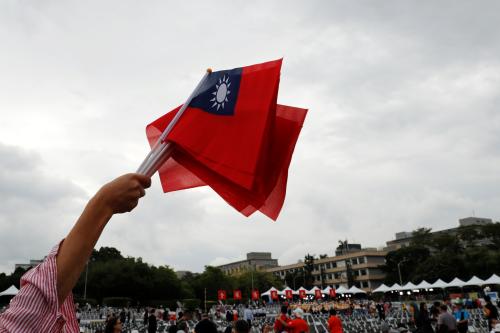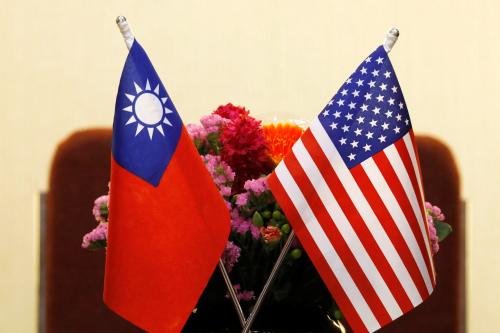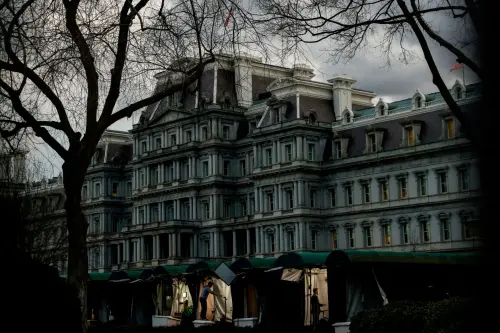On Monday, November 26, Richard Bush spoke with three Taiwan analysts about Taiwan’s local elections, which took place on Saturday, November 24. As they discussed, the ruling Democratic Progressive Party (DPP) of President Tsai Ing-wen lost a number of seats, while the opposition Kuomintang (KMT) received an uptick in votes and seats at multiple levels of government.
Bush observed: “These local elections wouldn’t merit much attention around the world if it were not for China, and China has very different views of the current ruling party, the DPP, and the current opposition party, the KMT. Basically, it likes the KMT much more than it likes the DPP, and so one might interpret the results there as being good for China and reflecting a desire on the part of Taiwan voters to improve relations with China—or it might not.”
Implications for the Democratic Progressive Party
Bush first asked Shelley Rigger, Brown professor of political science at Davidson College, to analyze what the election results imply for the DPP and for cross-strait relations under Tsai Ing-wen, whose position will be challenged in upcoming general elections in January 2020.
Rigger explained: “The number one takeaway for me from this election is that Taiwanese voters by and large are pretty conservative…and pretty cautious, and that came through very strongly in this election. The other thing I would say is that this is not an election about cross-strait relations. It’s not a kind of message to Beijing: ‘We want a radically different policy toward cross-strait relations.’ On the other hand though…it should serve as a reminder to folks on the mainland that their worst fears about Taiwan being a very progressive and kind of anti-China electorate are not justified.”
The electorate’s mood
Bush also had a conversation with Yu Ching-hsin, distinguished research fellow at National Chengchi University’s Election Study Center in Taiwan, about the outcome of Taiwan’s elections. The discussion emphasized what the elections tells us about the public mood in Taiwan and voters’ political preferences.
Yu noted “a strong anti-incumbent party tendency in Taiwan” and “the rapid drop in popularity of President Tsai and the incumbent DPP [were] very clear.” Whereas Tsai received close to 7 million votes in the 2016 general election, in this election she only received 5 million, indicating a sharp decline in popularity. Yu attributed the majority of popular discontent, among both older and younger generations, to the lack of economic growth.
What the elections say about Taiwanese democracy
Finally, Bush talked to Dafydd Fell, reader in comparative politics at the Department of Politics and International Studies and director of the Centre of Taiwan Studies at the School of Oriental and African Studies in London. Bush asked Fell to explain what the elections tell us about the state of Taiwanese democracy.
“There are a couple of things that really stand out for me,” said Fell. The first, he said, was “the scale of the KMT’s recovery.” The second element was the historic number of referendums held on the same day, comprising a wide range of discussions of social and policy issues, which made the event feel like a national election. Fell also noted that “for the first time we actually saw non-mainstream politicians getting into local government, or at least local councils.”
In all, Fell concluded, “It seemed to me that it’s much more the DPP losing this time, than the KMT winning…So the KMT looks like it’s recovered, but I think that we also have to be cautious there in giving the KMT much credit.”
The four scholars agreed that it might be too soon to write off the DPP ahead of national elections due to be held in early 2020, or to conclude that Beijing was the ultimate winner in this electoral outcome, given the Chinese government’s preference for the KMT. In the end, Taiwan’s elections demonstrate a robust and stable multiparty democracy.
The Brookings Institution is committed to quality, independence, and impact.
We are supported by a diverse array of funders. In line with our values and policies, each Brookings publication represents the sole views of its author(s).






Commentary
Four experts on Taiwan’s local elections
November 27, 2018